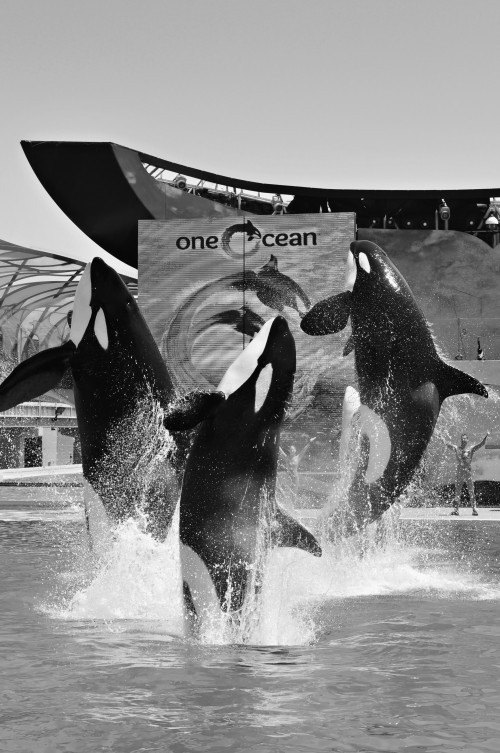SeaWorld sued following Blackfish fallout
By Christopher Reyes
BUSINESS EDITOR
@cd_rey
In 2013, local San Diego attraction SeaWorld was hit with a massive blow to their public image following the release of “Blackfish,” a documentary focused on the controversy over orca whales in captivity. It follows Tilikum, an orca whose captivity led to the death of three individuals, as claimed by filmmaker Gabriela Cowperthwaite.
SeaWorld was sued in federal court in San Diego last week. The suit alleges that SeaWorld misled investors by denying that “Blackfish” had a negative effect on park attendance. SeaWorld’s stock price, traded under the ticker SEAS, is down 28.75 percent over the last year and 38.84 percent since its IPO in 2013.
Following the film, SeaWorld has been inundated with bad publicity, despite the film’s setting in an unrelated Canadian aquarium. Protestors are often visible from SeaWorld drive, a road many students take to and from school.
Senior Jeff Barnett has taken notice of the protesters.
“It has made me question the practices of SeaWorld,” Barnett said. “I would be reluctant to visit the park.”
This sentiment is mirrored throughout the community. Negative publicity and an increase in public opinion that orcas do not belong in captivity has led to a massive drop in attendance at the park.
SeaWorld previously denied that negative publicity contributed to its financial troubles, blaming poor attendance on uncharacteristically poor weather and bad timing of public holidays. The company finally acknowledged the massive effect that the publicity has had following its second quarter earnings report, although they never specifically cite “Blackfish.”
They also cite recently proposed California legislation that would prohibit orca captivity as having an effect. The news caused the stock to plunge 33 percent the day the statement was released.
Senior and San Diego native Brandon Smith is dismayed by the news.
“It is sad to see a piece of my childhood and a major San Diego tourist destination decline.” Smith said.
Investor Lou Baker is now seeking compensation for himself and fellow stockholders. He claims that SeaWorld handled information about park attendance poorly and that investors should have been alerted to the possibility that park performance would continue to fall as a result of the film.
The suit claims that SeaWorld was in violation of securities laws by not disclosing relevant information and failing to make reasonable investigation into the park’s attendance problem.
This is in contrast to SeaWorld’s statements regarding attendance.
“The reality, however, was that the decline in attendance was the result of the ‘Blackfish’ film,” the lawsuit asserts.
In order to prove the allegations, the plaintiffs will need to prove that the company’s manner of handling the issue is what led to the stock failure and that management had a responsibility to report more information to the shareholders.
SeaWorld is a popular attraction for many students and groups at USD. It is sometimes one of the first tourist experiences new students have after arriving in San Diego. Should SeaWorld be found liable, the company may have trouble rebounding from the financial hit and a San Diego landmark may disappear.
SeaWorld has said they will not comment on the litigation. Last month they announced plans to expand and improve their orca habitats and remain committed to the Shamu show, the highlight of the park.
Many hope that the changes are enough for SeaWorld to remain a tourist destination.
“I truly hope SeaWorld recovers and returns to the fun and popular attraction they used to be,” Smith said. “It would really change San Diego if they weren’t around.”
